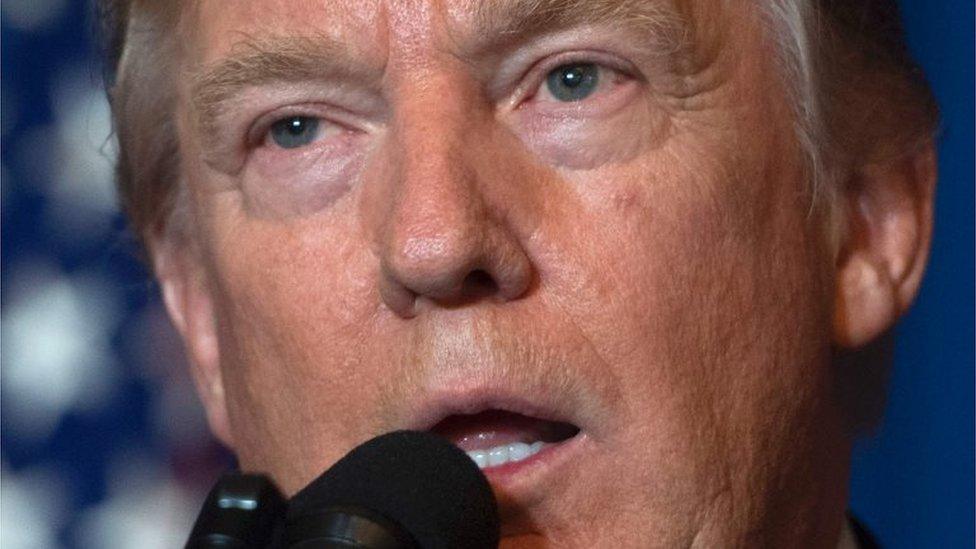Trumplomacy: Qatar is Tillerson's big test
- Published
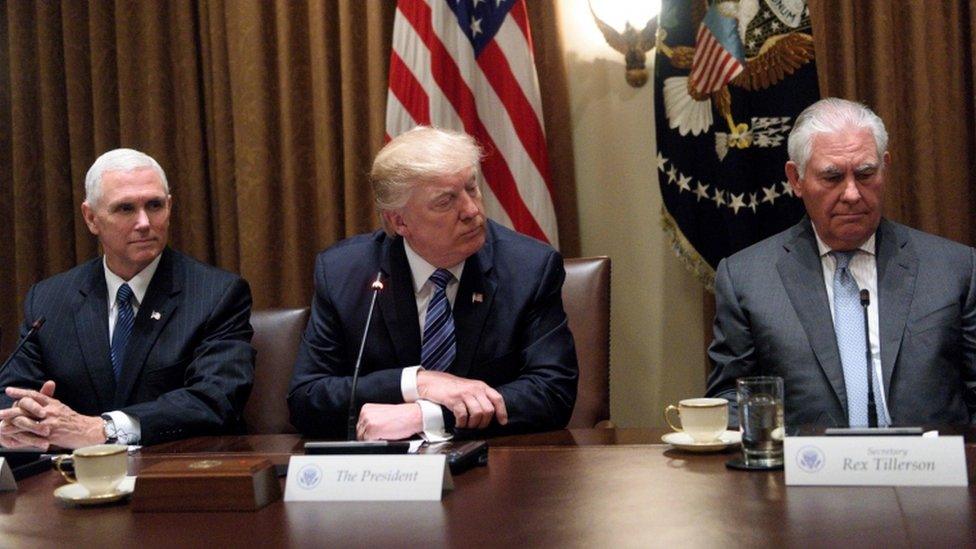
Rex Tillerson, far right, has been in government for less than a year after a career at Exxon
Rex Tillerson is facing his biggest test as secretary of state over the crisis involving the tiny nation of Qatar.
He's not only trying to mediate a solution to a visceral feud among America's Gulf Arab allies which threatens US national security interests. He has also been undermined by President Trump, who has publicly taken a side in the dispute and may even have helped to trigger it.
At issue are the accusations - levelled by Saudi Arabia, the United Arab Emirates, Bahrain and Egypt - that Doha supports terrorists. They've cut diplomatic and travel ties and issued a sweeping set of demands that Qatar claims are so "unrealistic" they're really aimed at forcing it to "surrender its sovereignty".
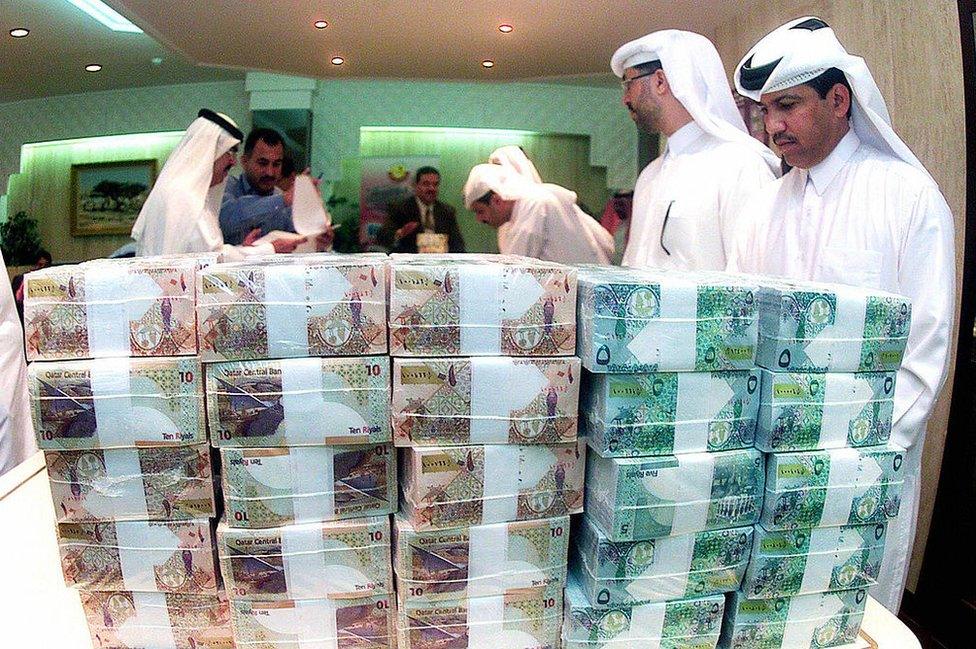
Qatari oil revenue has ensured them a significant role on the world stage
Mr Trump has delegated the mess to Mr Tillerson, but that didn't stop the president from castigating Qatar at a White House press conference for having funded terrorism "at a very high level".
He made the remark shortly after a visit to Saudi Arabia that so fulsomely embraced Riyadh some regional observers believe it emboldened the kingdom to take radical action on long-standing grievances against Doha.
"We felt that we had Trump by our side," mused a Saudi security expert, "so let's finish this little country that's been bugging us for years."
Qatar has been "bugging" its neighbours with its maverick foreign policy.

The Saudi-Qatar border crossing has been empty since the two countries broke relations
They accuse it of harbouring their opponents and giving them a platform on its Al Jazeera satellite channel, especially political Islamists such as the Muslim Brotherhood, which is viewed as a particular threat by the absolute monarchies.
The White House has called the tempest a "family issue", but it's not happening in a teapot; with US Mideast military assets spread out among the Gulf States, it can't avoid getting drawn in.
America's al-Udeid air base in Qatar is not only the headquarters for the air war against the Islamic State group in Iraq and Syria, but important for its ability to project power into the Indian Ocean.
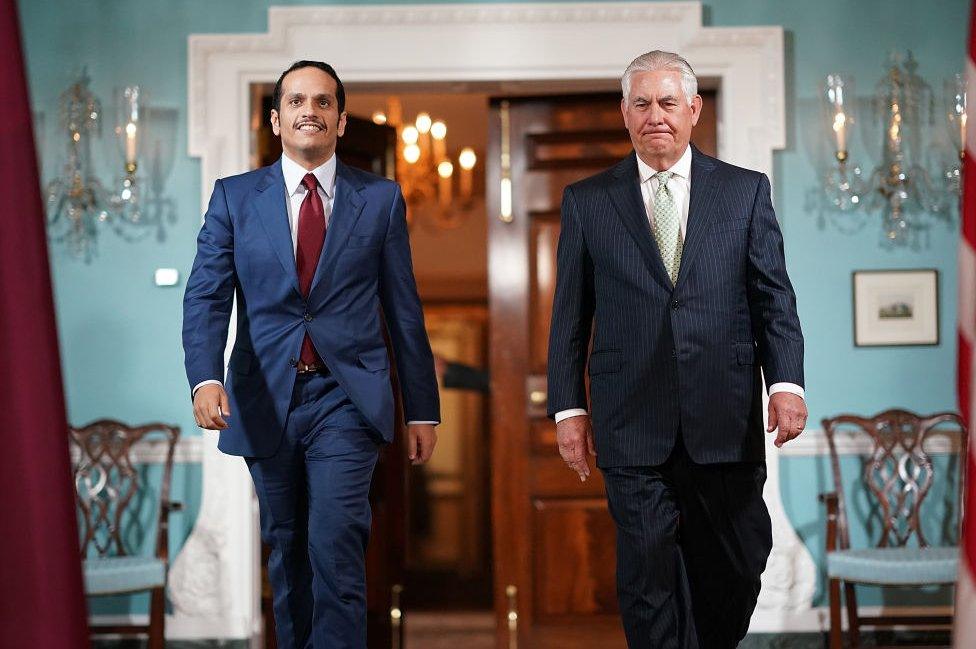
Tillerson met the Qatari foreign minister earlier this week
And the feud has thrown a spanner into the works of US Mideast policy, shattering a unified Arab front aimed at countering terrorism and confronting Iran.
"This is not a local regional thing," says Hussein Ibish of the Arab Gulf States Institute. "This is not a game."
This week Washington was crowded with Gulf foreign ministers making their case, and Mr Tillerson's been in the eye of the storm.
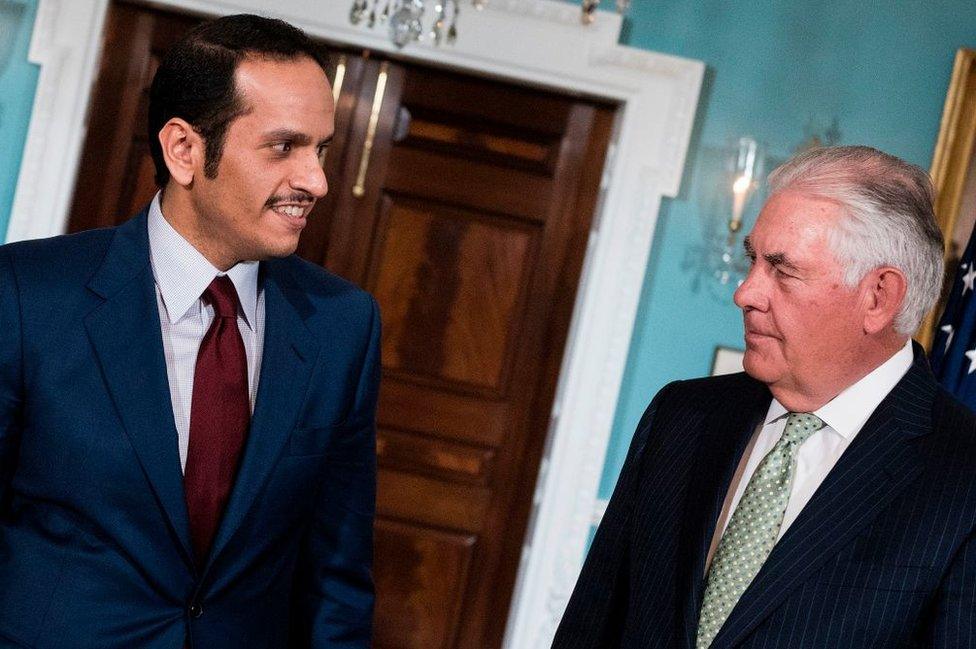
His intensive engagement has the backing of the White House, an administration official insisted.
"What gets the attention are the tweets and public statements," he said, but on the underlying policy, the "White House and State Department are on the same page."
At times, though, it has seemed as if they weren't even reading the same book.
Mr Tillerson was reportedly blind-sided and infuriated by President Trump's Rose Garden denunciation of Qatar, delivered just hours after the secretary of state had called for an end to the blockade.
His aides were apparently convinced that the true author of Mr Trump's statement was the UAE ambassador Yousef Al Otaiba, a close friend of Mr Trump's son-in-law Jared Kushner, according to Mark Perry of the American Conservative, external.
Qatari communications, on the other hand, have been channelled entirely through the Department of State, says the Foreign Minister Sheikh Mohammed bin Abdulrahman al-Thani, barring some initial phone calls from White House officials.
Mr Tillerson has levied some sharp words at Qatar's Gulf detractors, suggesting that political disputes were driving their accusations of terrorism, and declaring that some of their demands would be difficult for Qatar to meet.

Trump attended a summit with the leaders of Islamic countries during his visit to Riyadh
His approach, though, has been that of a facilitator, focused on helping the Qataris prepare their response to the list of demands. He hopes this can serve as the basis for negotiations, even though the Saudis have said there is nothing to negotiate.
"Zero tolerance" the foreign minister Adel al-Jubeir has declared.
But it is unclear how far the administration is willing to use its considerable leverage to even get everyone around the table, let alone muscle all sides into a resolution.
It's up to Mr Tillerson to make the case for a way forward. But the former oil executive has yet to find a way to turn his business acumen into political nous, translating his apparently strong relationship with the president into a strong policy-making role.
And the public disconnect with the White House has weakened his hand.
"I think he has less authority to speak in the name of the US government than other secretaries of state have had in the past," says Jon Alterman of the Center for Strategic and International Studies.
"It's a very dangerous position for a secretary of state to be in when you can't confidently speak in the name of the president."
- Published7 June 2017
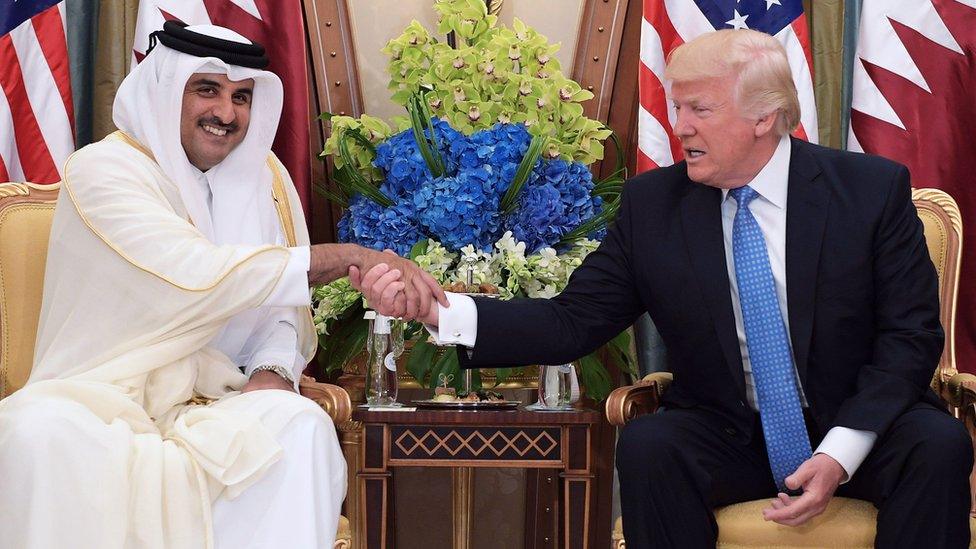
- Published20 June 2017
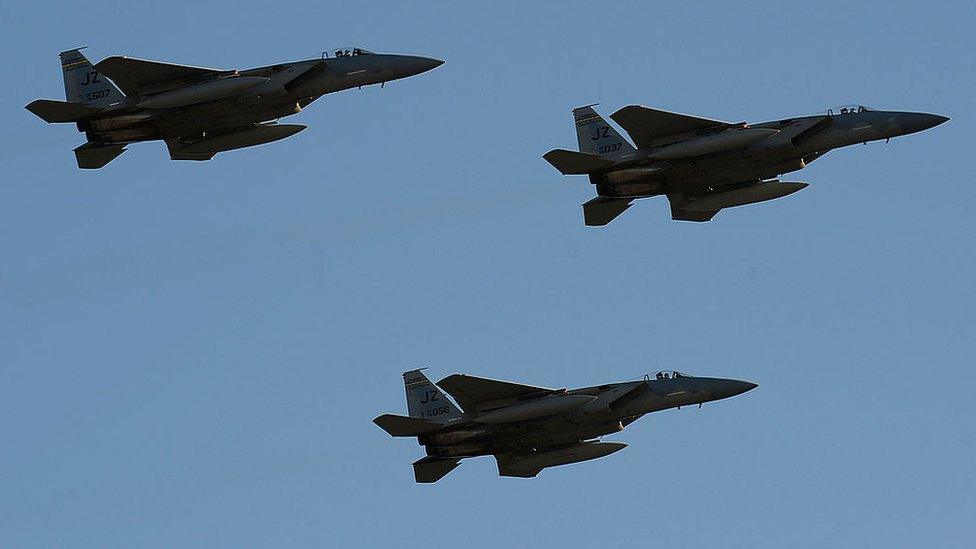
- Published2 June 2017
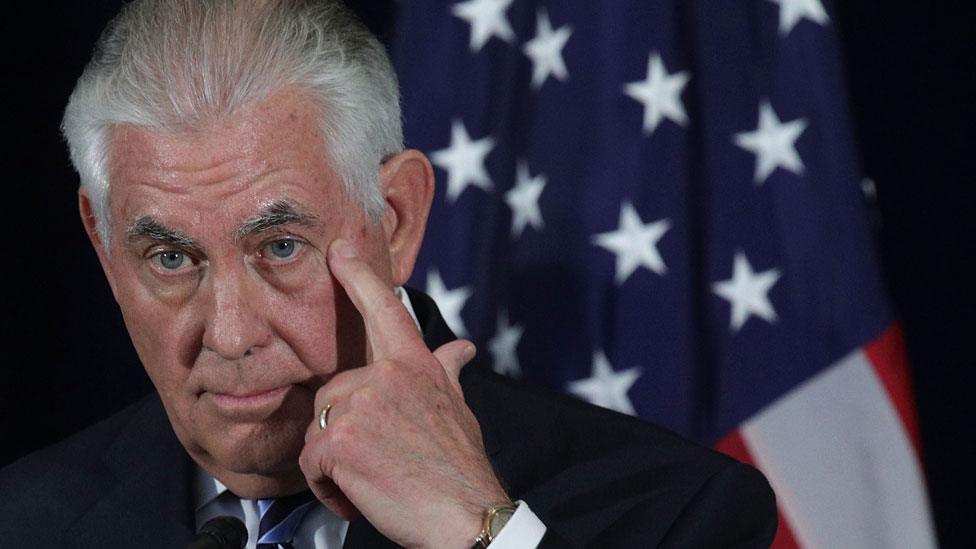
- Published7 April 2017
